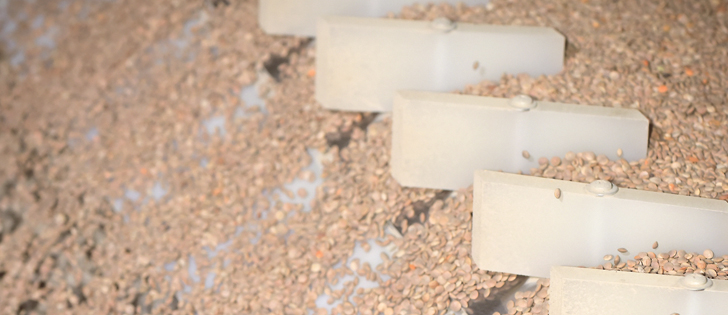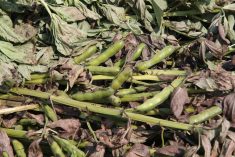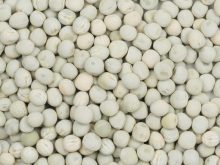The country gave no advanced notice and hasn’t identified what pest poses a concern that requires fumigation
Just when Canada’s pulse industry got temporary relief on a trade impediment with India, a new one has cropped up with Pakistan.
The new director general at Pakistan’s equivalent of the Canadian Food Inspection Agency is de-manding grain shipments be fumigated at origin rather than at arrival as was done in the past.
The CFIA decided to enforce the new rules immediately, which jeopardized cargo that was already at sea.
The trade complained about the lack of advance notice and the CFIA relented and moved the fumigation date back to March 31.
Read Also

Critical growing season is ahead for soybeans
What the weather turns out to be in the United States is going to have a significant impact on Canadian producers’ prices
Gord Bacon, chief executive officer of Pulse Canada, said Pakistan is not following a science-based approach with its new phytosanitary policy.
There was no advance notice of the policy change and Pakistan failed to identify what the pest of concern is that requires fumigation.
“How do you proceed if you don’t know what it is you’re trying to address?” said Bacon.
Canada needs to know what pest Pakistan is worried about so the CFIA can identify whether it exists in Canada and devise a proper pest management strategy.
He said there needs to be a science-based approach to the fumigation issue like there is in India, which has identified the stem and bulb nematode as the pest of concern.
Canada recently received a three-month extension on an exemption to India’s fumigation policy while authorities review a submission by Canada contending there is no need for fumigation whatsoever.
There is some speculation that Pakistan’s policy change has more to do with markets than food safety.
A story at Graincentral.com, an Australian online grain news site, says the Indentors Association of Pakistan, which is a trade association, sent a letter urging pulse crop exporters in Canada and Australia to delay shipments because the chickpea and lentil markets have crashed in Pakistan.
“If strict action is not taken to revive the Pakistan pulse market we might see major defaults in the market as currently the market is coming down fast,” stated the letter.
“It is time to support the importers by pushing the shipments and slowing down the cargo arrival.”
Bacon has no problem with importers and exporters discussing issues like that between themselves.
“But it is absolutely wrong for plant quarantine issues to be used to detract from trade,” he said.
“That is not a tool to be abused to impact marketing of product.”
Bacon said Pakistan’s new fumigation policy has already disrupted export programs, forcing companies to cancel and defer shipments.
But according to Guy Gallant, spokesperson for federal Agriculture Minister Lawrence MacAulay, there are no shipments stuck in the port of Karachi in Pakistan as has been reported.
Trade is flowing normally and talks are underway to find a solution.
“Discussions are ongoing with industry and with authorities in Pakistan to work toward a solution,” Gallant said in an email.
Chuck Penner, analyst with LeftField Commodity Research, said it appears as though Pakistan has overbought.
“They’ve got these containers of pulses piling up in their port and they can’t move them out fast enough,” he said.
Penner believes Pakistan is following in India’s footsteps by using its fumigation policy to stop shipments.
The good news is that it’s not as influential a buyer as India. India is the top buyer of Canadian lentils and peas.
Pakistan ranks fifth for lentils and 14th for peas, spending a combined $129 million on the two commodities in 2016.
Penner believes the new policy will have a bigger impact on Australian exporters, who may start to reroute product to other markets such as India, Turkey, Sri Lanka and Bangladesh.


















